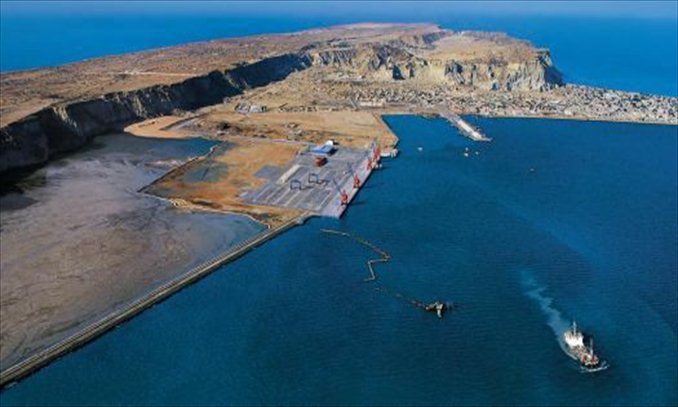China takes over Gwadar Port

A Chinese company Monday took over the operation of the strategic Gwadar Port in Southwest Pakistan and at the door of the Strait of Hormuz, which has been seen as a move that could secure an energy route for China.
At a ceremony held in Islamabad on Monday afternoon, representatives from Chinese Overseas Port Holdings Ltd, Gwadar Port Authority and the Port of Singapore Authority (PSA) signed an agreement on the transfer of the port's administrative control. Pakistani President Asif Ali Zardari attended the ceremony, saying the agreement marked the start of a new chapter in the lives of the people of Baluchistan and the Pakistan-China friendship, Pakistan's The Express Tribune reported.
Under the agreement, the Chinese company will fully assume responsibility for the port. It will remain the property of Pakistan and the Chinese company will share the profits.
"I think shifting the administrative control of the port to China would improve the performance and infrastructure of the port, which can be a huge financial hub for the region," Pakistani Foreign Office spokesperson Moazzam Ahmad Khan told the Global Times via telephone prior to the signing ceremony.
The strategic location of the port has caught the attention of regional and world powers.
Iran's Navy Commander Habibollah Sayyari Sunday said that the country would establish a new naval base in Pasabandar, about 30 kilometers west of the Gwadar Port, Iranian media reported.
The Chinese company's takeover of the port has raised concerns among regional players, such as India, and AFP commented that it gives China "a potential naval base in the Arabian Sea."
Liu Jian, China's ambassador to Pakistan, told Pakistani paper Nawa i Waqt that no country should have apprehensions over Pakistan-China cooperation, and that the hypothesis of China using the port for military purposes was absolutely baseless.
The operation of the strategic port is also widely regarded as a key move by China to seek an alternative to the Strait of Malacca, through which over 80 percent of the country's imported oil passes.
AFP quoted experts as saying that it would cut thousands of kilometers off the distance which oil and gas imports from Africa and the Middle East have to travel to reach China.
Under its 12th Five-Year Plan, China has vowed to accelerate the construction of railways and highways linking Gwadar Port and Kashi in Northwest China's Xinjiang Uyghur Autonomous Region.
The construction of the railway was proposed as early as 2008 by former Pakistani president Pervez Musharraf, together with the building of an oil pipeline.
"When completed, the railway line will serve as a corridor for logistics and energy, further deepening the strategic relationship between Pakistan and China," a senior local official in Kashi told the Global Times under the condition of anonymity, adding that preliminary work on the project is already underway.
The taking over of the port and the future railway line will help Kashi realize its strategy of becoming a logistics center in Central Asia, he said.
Zhou Dadi, former director-general of the Energy Research Institute under the National Development and Reform Commission, told the Global Times that the port's role in securing China's energy supply is being overstated, adding that the costs for building an oil pipeline and transporting oil via railways would be high.
"The idea of using the route from Pakistan to China as an alternative energy line can be seen as a last resort at most," he said, adding that a situation in which the Strait of Malacca is blocked would result in a worldwide conflict, which is highly unlikely.